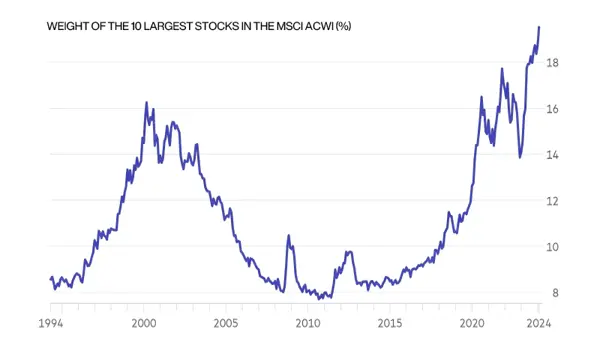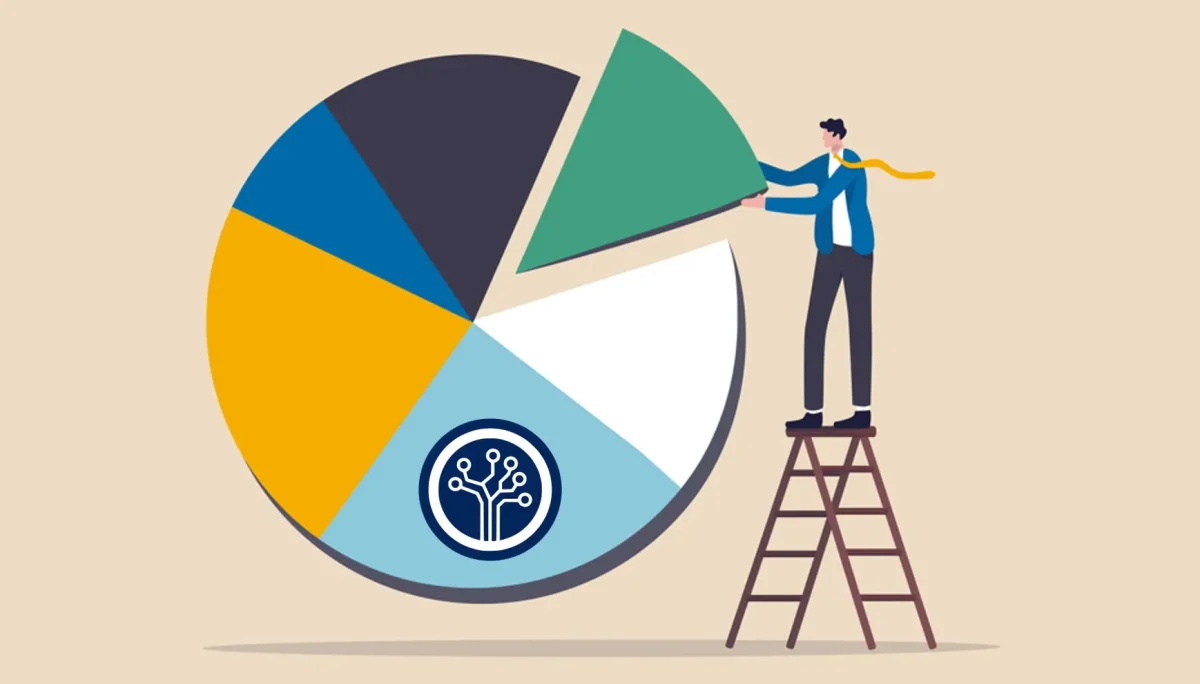For the last ten years, the popular advice has been to allocate the stocks part of your portfolio to a passive fund that tracks global indexes, and then just forget about it. And that sounded like pretty sensible advice: what better way is there to spread your bets than to own a tiny slice of every publicly listed company on the planet?
Well, this widely accepted strategy is starting to look increasingly risky, with global stock market concentration rising to its highest level – in a generation.
The ten biggest stocks in the MSCI All Country World Index, which tracks a few thousand shares across 23 developed and 24 emerging market countries, now account for 19.5% of the widely followed benchmark. That’s up from less than 9% as recently as 2016 and well above the dotcom-era peak of 16.2% in March 2000. That matters, because today’s more concentrated stock market is more prone to substantial falls in value – especially considering that many of those ten biggest stocks are viewed as AI plays, which could spell trouble for investors if the technology doesn’t live up to its considerable hype.

Stock market concentration in the MSCI All-Country World Index has risen to its highest level in decades. Sources: FT, MSCI.
The MSCI World Index, meanwhile, is even more concentrated. It’s exclusively made up of developed market shares, and its top ten stocks – all of which are American – account for 21.7% of the benchmark. In fact, the US’s weight in the index is over 70%.
Such a high concentration in a single country leaves investors vulnerable to whatever macroeconomic or market sentiment swings might happen in that one place.
In other words, it’s not quite the diversification you might expect from a “global” stock index.


